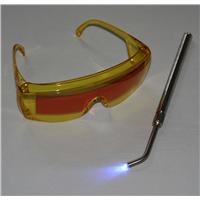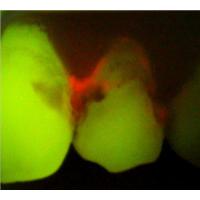Poor dental and oral care is putting millions of people in the UK at risk of health issues. New research has discovered all too many adults are unaware of just how important a healthy mouth is – leaving them vulnerable to gum problems, such as bleeding gums, tooth loss and even a heightened risk of cardiovascular disease.
The research was commissioned by the Simplyhealth Advisory Research Panel (ShARP) to find out more about the nation’s oral health habits and the different attitudes between genders. The panel is a body of independent experts set up to help communicate the latest intelligence on a variety of important health areas. They have been brought together by Simplyhealth – one of the UK’s leading healthcare providers. ShARP takes a closer look at the UK’s oral care habits.
In the new study by ShARP, a total of 2,000 people aged 25 to 65 across the UK were surveyed – 62% were female, 38% were male. The ShARP research found that:
• The average time people spent brushing their teeth was two minutes and 13 seconds
• Half (50%) of respondents said they brushed for two minutes or less; one in 10 brushed for less than a minute
• Nearly three quarters of those questioned (73%) said they only changed their toothbrush every six months or more.
Habits: Women vs. Men:
• Women were more likely than men (25% compared to 20%) to clean between their teeth to remove bacteria and debris every day, though more than half (54%) said they only cleaned between their teeth occasionally
• Women were more likely to use dental floss than men, whilst men were more likely to use a toothpick than women
• Nearly a third (30%) admitted they sometimes use a mouthwash instead of brushing – men were more likely to do this than women (39% compared to 25%)
• Women were more likely than men (83% compared to 69%) to say that it was important to remove bacteria from the mouth on a daily basis
• Men were twice as likely as women to change their toothbrush just once a year (11% compared to 6.3%)
• Nearly half (45%) of all respondents said a day was the longest they had gone without brushing their teeth, however men were more likely than women to leave it longer between brushes – 19% admitted going without brushing for up to two days compared to 14% of women. One in 20 men went without brushing for up to four days compared to just 1% of females
• Men were more likely to blame partying and work for not brushing, while women were more likely to blame the delay on travelling on an aircraft
• More than half of all respondents (59%) said they would refuse to lend their own toothbrush to anyone. Of the 41% who said they would lend out their brush, most (23%) said it would be to their partner, with just 5% saying they would lend their brush to their child.
Gum disease signs
Nearly two thirds (63%) admitted they had noticed blood in their spit at some time or other after brushing their teeth – a classic symptom of gum disease. Nearly four out of 10 (38%) said this was at least once a week, with 13% saying it was every day or almost every day. More than half (53%) thought blood in spit was considered a worrying sign and a greater number (60%) said they would be worried about their children leaving blood in their spit. Just under half (45%) correctly thought that blood in the spit or in the sink after brushing could be a sign of potential tooth loss later in life.
Health links: Mixed bag of knowledge
More than three quarters of those questioned (80%) agreed that there was a link between oral health and general health – men were far more likely than women (27% compared to 16%) to wrongly presume that there is no connection. Respondents showed a mixed bag of knowledge when it comes to the health conditions that poor oral health is linked with. Nearly half (42%) thought gum disease and tooth loss (42%) were linked with oral health issues, followed by heart disease (26%), diabetes (15%), cancer (14%), poor pregnancy outcomes (7%), osteoporosis (6%) and stroke (34%). In fact, all these conditions are linked with poor oral health. Three quarters of those polled said they would aim to brush their teeth better and take better care of their dental health if they knew for certain that poor oral health was associated with serious health conditions.
However, men were more likely than women (27% compared to 22%) to refuse to change their current oral care regime even if they were aware of a health link.
Tooth loss
Men were less likely than women to care about the effect a person’s lost teeth had on their appearance and were more likely than women to say that lost teeth made no difference to them at all (16% compared to 11%). Men were far more likely than women to be unconcerned about losing teeth themselves in later life (51% compared to 31%).
Embarrassing moments
When it comes to the sorts of foods that are most likely to get lodged between the teeth and become annoying, bits of gristle from meat was named as the worst with more than a third (35%) of respondents complaining about the problem. This was followed by peanuts and other nuts (20%), vegetables such as spinach (11%), crisps (10%) and bread (6%).
Visiting the dentist
Half (50%) of the respondents questioned admitted the cost of going to the dentist has put them off visiting a dentist for a check-up or routine dental work – 15% said this was a common occurrence. When it comes to covering the cost of dental care, nearly two thirds (62%) said they would be happy to pay the equivalent cost of a newspaper a day to make sure their or their family’s dental health was secure. The vast majority (91%) felt it was important to have regular check-ups at the dentist, however 21% of women and 29% of men admitted they hadn’t visited a dentist in the last year for a check-up or any other work.
About ShARP:
To help communicate the latest studies and intelligence on oral care matters and a variety of other important health areas, Simplyhealth – one of the UK’s leading healthcare providers – has launched a new information group. The new Simplyhealth Advisory Research Panel – ShARP – will become a leading source of information and data, helping to make more people feel better by exploring ground-breaking research and discussing the latest scientific and medical thinking.
The new Simplyhealth Advisory Research Panel – ShARP – will:
• provide independent and objective information about key health concerns;
• provide experts for journalists and media on all aspects of health;
• deliver breaking news on health issues and research that affect individuals and families.
ShARP is a panel of experts. They are:
• Professor Robin Seymour, a periodontal expert
• Dr Gill Jenkins, a practising GP with an interest in lifestyle health
• Dr Catherine Hood, a women’s health expert
About Simplyhealth:
Simplyhealth is the UK’s biggest cash plan provider and a major player in the private health insurance and mobility markets. It now also includes Denplan, the UK’s largest provider of dental plans, which helps nearly two million people to access dental care and treatment. It’s perhaps no surprise that the company’s phrase is ‘in a world where so many people can’t be bothered, we’re proud to be the healthcare company that can.’
The company is proud of its 140-year tradition of excellence in healthcare service and its strong tradition of caring for customers as true individuals. The company aims to help people access affordable healthcare and in doing so deliver exceptional personal customer service.
Simplyhealth has over three million customers and patients, serving nearly four million people, and is also a healthcare provider to 20,000 companies. While the company has changed and adapted over the years, its award-winning commitment to do the right thing by its customers has not. Simplyhealth is committed to its strongly held values and to supporting communities. With no shareholders, it only invests its profits into running the business for the good of its customers, or making donations to health-related charities with £1.6m given away last year.
The company has always complemented the NHS. Its cash plans help people with their everyday health, whether they use NHS or private practitioners. The private health insurance works alongside the NHS, and is often provided by companies as an employee benefit to help staff at times of ill health.
For more information about ShARP see:
For more information about Simplyhealth see:
www.simplyhealth.co.uk

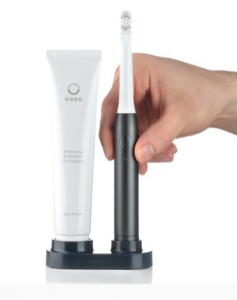
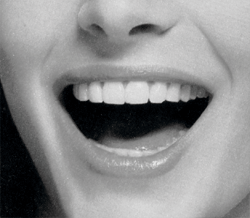


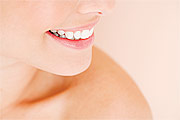
![Dentyl_range_without_bg [320x200].jpg](https://www.elixirnews.com/assets_c/2010/09/Dentyl_range_without_bg [320x200]-thumb-320x226-257.jpg)
 Philips Sonicare HX631/02 Health White Delux Rechargable Toothbrush £61.18
Philips Sonicare HX631/02 Health White Delux Rechargable Toothbrush £61.18 Braun Oral Professional Care Deep Clean and Sensitive 8500 Rechargable Toothbrush £35.86
Braun Oral Professional Care Deep Clean and Sensitive 8500 Rechargable Toothbrush £35.86
![whitegloww1 [200x200].jpg](https://www.elixirnews.com/assets_c/2010/09/whitegloww1 [200x200]-thumb-200x123-268.jpg)
![group shot fruit [200x200].jpg](https://www.elixirnews.com/assets_c/2010/09/group shot fruit [200x200]-thumb-200x144-270.jpg)
![ZyloSweet - ZYS500 [200x200].jpg](https://www.elixirnews.com/assets_c/2010/09/ZyloSweet - ZYS500 [200x200]-thumb-119x200-272.jpg)





